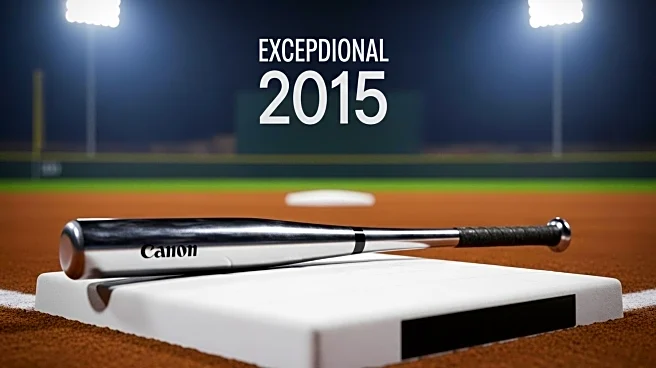What's Happening?
Bryce Harper's standout 2015 season with the Washington Nationals was significantly bolstered by his performance against the Philadelphia Phillies. During that year, Harper played 17 games against the Phillies, hitting eight home runs and driving in 16 runs, his highest against any team. The Phillies' pitching staff, ranked 29th in the league, struggled against Harper, who capitalized on their weaknesses. A notable series in September 2015 saw Harper hit four home runs over three games, contributing to a Nationals sweep. Harper's success against the Phillies was a key factor in his MVP-winning season, where he achieved a career-high 9.7 WAR and led the league in several offensive categories.
Why It's Important?
Harper's performance against the Phillies in 2015 highlights the impact individual matchups can have on a player's season and career accolades. His ability to exploit the Phillies' pitching deficiencies not only padded his statistics but also played a crucial role in securing his first MVP award. This underscores the importance of team dynamics and individual matchups in baseball, where a player's success can be significantly influenced by the quality of the opposition. Harper's subsequent move to the Phillies adds an interesting narrative, as he now plays for the team that once contributed to his MVP success.
What's Next?
As Harper continues his career with the Phillies, his past performances against them add an intriguing layer to his current role. His history of success against the Nationals, now as a member of the Phillies, suggests potential for continued strong performances in these matchups. The dynamics of player-team relationships and past performances will likely continue to influence Harper's career trajectory and the Phillies' strategies.
Beyond the Headlines
Harper's career trajectory, moving from a team he once dominated to becoming a key player for them, reflects broader themes in sports of loyalty, rivalry, and career evolution. His story illustrates how past performances can shape future opportunities and narratives in professional sports.









